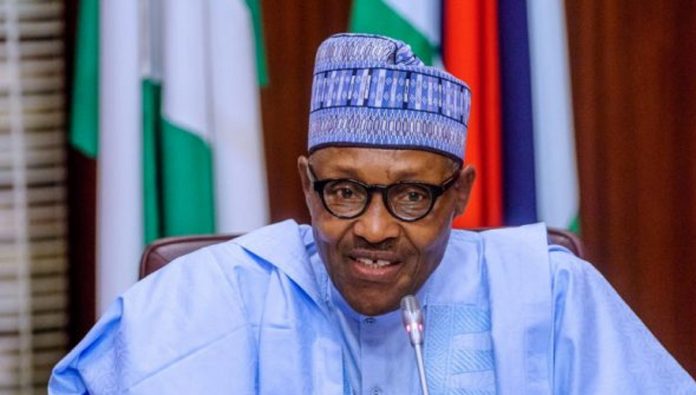Nigeria is expected to generate more that $500 million annually in royalties and taxes and around 250,000 jobs from the improved gold mining operations in the country.
President Muhmmadu Buhari disclosed this on Thursday during the official presentation of locally mined gold bars by the Presidential Artisanal Gold Mining Development Initiative (PAGMDI) to him at the Presidential Villa in Abuja.
While hailing the initiative and reaffirming the administration’s commitment to establishing gold refineries, the President lamented the huge amount of resources that had been lost to illegal mining and and smuggling in the mining industry.
In a statement by the Special Adviser to the President on Media and Publicity, Mr Femi Adesina, Buhari said the initiative would support efforts at creation of jobs for Nigerians, diversifying the revenue base, and improving foreign exchange reserves.
Reiterating the determination of the Federal Government to combat illegal mining activities, the President expressed concern that Nigeria lost close to $3b from 2012 – 2018 due to illegal smuggling of gold.
‘‘With the implementation of the PAGDMI scheme which will result in the set-up of accredited gold buying centres across key mining areas, artisanal miners and SMEs engaged in mining will be able to capture the value of their work.
‘‘These operations will help in diversifying our revenue base. The sale of gold by artisanal miners and SMEs at accredited centers will help the government in realizing royalties and taxes from the sale of these assets.
‘‘These developments will also help in improving our foreign reserves by enabling the Central Bank of Nigeria to increase the amount of gold in its reserves.
‘‘These gold assets which will be purchased in Naira, will not only help to bolster our international reserves, it will also provide a hedge against inflation and other economic volatilities associated with foreign currencies that are held in our reserves,’’ the President said.
Buhari noted that in addition to the potential revenue gains that will occur from mining operations, efforts are being made to enable the setting up of gold refineries in Nigeria.
He expressed optimism that these measures would lead to the creation of additional job opportunities across the gold value chain and also help the nation capture the additional value created from the gold refining process.
The President recalled that the PAGMI, which was launched in 2019, was well timed, considering the impact of COVID-19 on the global economy and indeed on the Nigerian economy.
He said the impact of COVID-19 and the containment measures designed to slow the spread of the virus, had led to a slowdown in global growth, which is projected to decline into negative territory for the first time since the Great Depression.
‘‘It has also led to a 40 percent drop in crude oil prices. In Nigeria, the drop in crude oil prices has had a significant impact on government revenue, as well as on our foreign exchange earnings.
‘‘In responding to this challenge, it is therefore paramount that we strengthen our efforts at implementing policies and programs that will enable greater diversification of the Nigerian economy.
‘‘Enabling investment in the Solid Mineral sector, is a key part of the government’s economic diversification program.
‘‘Given our current estimated gold reserves of over 200m ounces, most of which have not been exploited, developing sustainable programmes that will catalyse increased investment in the extraction and refining of gold sourced from mines in Nigeria, is indeed vital,’’ he said.


